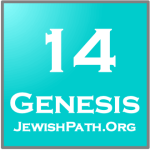
Pages
- 00 Rosh Ha Shanah
- 09 Authentic Blessings
- 10 – Depression
- ABORTION!
- Home
- Privacy Policy
- 01 – Sexual Confusion
- 1 – Good
- Genesis 1 – Eht
- Yom Kippur 5783 FC
- 2 – Souls
- Genesis 2 – Responsibilities
- 03 – Putting Life in Perspective
- 3 Associations
- Genesis 3 – The Serpent
- 4 Improving
- Genesis 4 – Improve
- 05 – Succeeding
- 5-Androgynous
- Genesis 5 – Sexual Origins
- 06 Fallen
- 6 – Viciousness
- Genesis 6 – Good / Evil
- 07 Sensitivity
- 7-Closed
- Genesis 7 – Obeying God
- 8 –Youth
- Genesis 8 – How God Remembers
- Hope-Peace In Tuff Times
- 09 – Vegetarian
- Genesis 9 – Blessings of A Vegetarian World
- 10 – Cursed
- 10 – Drunkenness
- 10 Guiding, Children
- 10-Fulfillment
- 10– Sovereign
- Genesis 10 – Evil Nimrod
- 11 – Corrupt Language
- 11-Language
- Genesis 11 – Confused Languages and Words
- 12 Truth Reveals
- 12-Bless
- Genesis 12 – Acknowledging God
- 13 – Motivating Ourselves
- 13-Separation
- Genesis 13 – Names
- 14 – Abraham’s Principles & Practices
- 14-Solutions
- Genesis 14 – Governmental Problems
- 15 Visions
- Genesis 15 – Shield of Abraham
- 16 – Sarah’s Visions
- Genesis 16 – Sarah And Hagar
- 17 Abraham Perceived Lord
- Genesis 17 – A Better Me!
- 18 – People Skills
- 18 How Does Lord Appear?
- Genesis 18 – Warmth & Lovingkindness
- 19 – Choices
- Genesis 19 Lessons From Lot
- 20 Illumination
- Genesis 20 – Abraham’s Perception
- 21 Doubting God
- Genesis 21 – Abrahams Hospitality
- 22 – Confidence In God
- 22 – Validation
- Genesis 22 God’s Examination
- 23 Sarah’s Goodness
- Genesis 23 Death
- 24 – A Virtuous Wife
- 24 Wealth & Influence
- Genesis 24 Aging
- 25 – Comfort
- Genesis 25 – F.A.R. Family Acrimony Rancor
- Genesis 25 Hagar’s Prophecy
- 26 – Famine and Blessing
- 26 Whole Person
- Genesis 26 Three Wells
- 27 – Obey My Voice
- 27 Family Crisis
- Genesis 27 Don’t Let Illness Define You!
- 28 – Blessed Means
- 28 Isaac’s Stubbornness
- Genesis 28 Redemption
- 29 – Leah’s Matriarchal Guidance
- 29 – Spiritual Uniqueness
- Genesis 29 The Struggle
- 30 – Crisis of Identity
- 30 Marriage Is Complicated
- Genesis 30 Contrasting 2 Sisters
- 31 – Evil Influences
- 31 – Hometown
- Genesis 31 Associations
- 32 Feeling Insignificant
- 32 Feeling-Insignificant
- Genesis 32 Being Insignificant
- 33 – Tripped Up?
- Genesis 33 Yisroel’ Essence
- 34 Violating Individual Space
- Genesis 34 Respect Others Space
- #744 (no title)
- 35 When G-d is For Us
- Genesis 35 Unsettled
- 36 – Meat or Veggie
- 36 Takers!
- Genesis 36 Self Indulgence
- 37 – Missing
- 37 Isaac The Stranger
- Genesis 37 Joseph?
- 38 – Relationship Fiascos
- 38 God Alters Life’s Twists & Turns
- Genesis 38 Wrong Turns
- 39 All God Does Is Good
- 39 Gods Mercies
- The Lord Was With Joseph
- 40 An Offense
- 40 Mistakes – We all Makem
- 40 Observances Lift Us
- 41 – God’s Timing
- 41 Enlightenment
- 41 Exact Times In Ha Torah
- 42 – Reflect Return and Restoration
- 42 Growth
- 42 Motivated?
- 43 – Jacobs Hesitation
- 43 Consternation
- 43 Peculiar Behavior
- 44 And He Commanded
- 44 – Intricates
- 44 – Puzzling
- 45 – Burdened With Guilt
- 45 Preserve Life
- 45 Preserving Life
- 46 – Accounting
- 46 – Uniting
- Genesis 46 Unity
- 47 Immigration
- 47 Minimalists
- 47- Equal Measure For Equal Measure
- 48 – Shechem
- 48 – Sickness-Weakness-Death
- 48 Historic Details
- 49 – Fractured or United
- 49 Fractured or Not?
- Gen 49 Triumphant
- 50 – Trust
- 50 – Our Darkest Hour
- Genesis 50 – Fear
About This Site
This may be a good place to introduce yourself and your site or include some credits.
Find Us
Address
123 Main Street
New York, NY 10001
Hours
Monday–Friday: 9:00AM–5:00PM
Saturday & Sunday: 11:00AM–3:00PM
